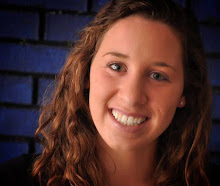Ms. Peifer
English 10 IB, Hr 4
2 March 2009
Macbeth: Act 3
In this act, Macbeth and Lady Macbeth qualities begin to switch. Before, Lady Macbeth had been the strong, savage, decision-making one of them and Macbeth was the sorrowful, remorseful one, but now they are beginning to switch roles. While before he felt guilty about murdering Duncan, now he is planning another murder, that of his friend Duncan. He says that he could "with barefaced power sweep him from my sight and bid my will avouch it, yet I must not, for certain friends that are both his and mine" (3.1.135-137). This is Macbeth saying that he would kill Banquo himself if it weren't for the friends they share that he cannot lose. It shows how Macbeth is becoming the cruel one who will do anything for power. This is how Lady Macbeth used to be but now the reader hears her say that "'tis safer to be that which we destroy than by destruction dwell in doubtful joy" (3.2.8-9). This shows how she is beginning to realize what she has done and that it is wrong. Also, Macbeth used to be the follower who was forced into these kind of plots by Lady Macbeth but in this act he plans the murder of Banquo himself and tells Lady Macbeth to "be innocent of the knowledge, dearest chuck, till thou applaud the deed" (3.2.51-52). This shows how now he doesn't even want her to be a part of these awful schemes and he can do them himself.
Throughout this act there are many refernces to blood. It is used as a symbol of guilt. When Macbeth is trying to blame Malcolm and Donalbain for the death of Duncan he says, "We hear our bloody cousins are bestowed in England and in Ireland, not confessing their cruel parricide" (3.1.33-35). This is Macbeth trying to make them sound guilty so nobody is suspicious of him. Another example is when Macbeth tells the murderer that "there's blood upon thy face" (3.4.13-14), meaning that he now has the murder of Banquo on his conscience. Macbeth once more uses blood to represent his guilt saying, "I am in blood stepped in so far that, should I wade no more, returning were as tedious as go o'er" (3.4.168-170). This means that he has committed so many murders that even if he did stop it would be just as hard for him return to his normal life because of all the guilt he has.
An important theme is fear and paranoia. After having committed the murders of Duncan and Banquo, Macbeth is very paranoid of other people finding out and coming after him. He is so fearful of people finding out and coming after him that he tries to blame others, like when he tells everyone Malcolm and Donalbain have fled. He says, "We hear our bloody cousins are bestowed in England and in Ireland, not confessing their cruel parricide" (3.1.33-35). This shows how determined he is to blame others so there will be no suspicions on him, that he is blaming the very sons of the dead king for his death. Macbeth is also very paranoid that Banquo will come after him because he heard the prophecy also and is already suspicious of Macbeth for the death of Duncan. He states that Banquo is in "such bloody distance that every minute of his bein thrusts against my near'st of life" (3.1.132-134). This is showing how afraid Macbeth is that Banquo will come after him, especially since Banquo's sons are prophesied to be king. This makes Macbeth afread of all of them and wants them all killed.




No comments:
Post a Comment